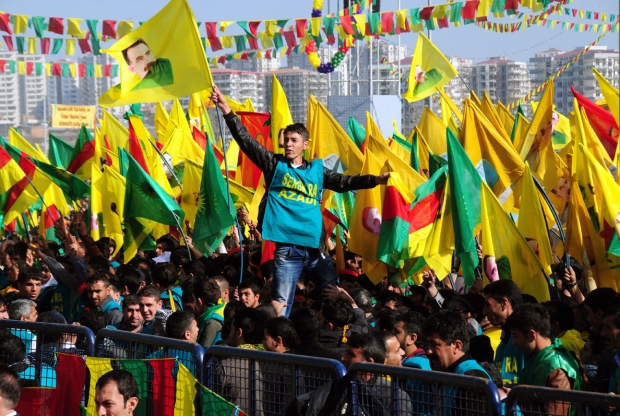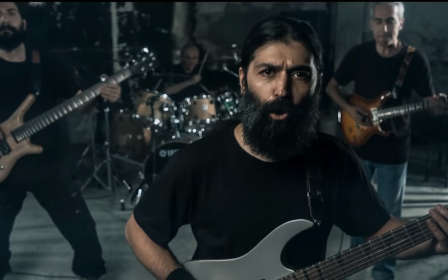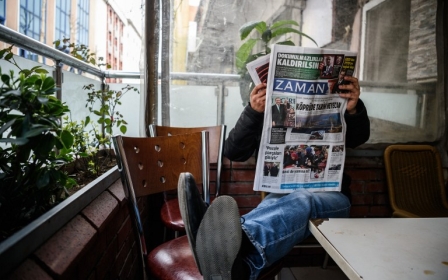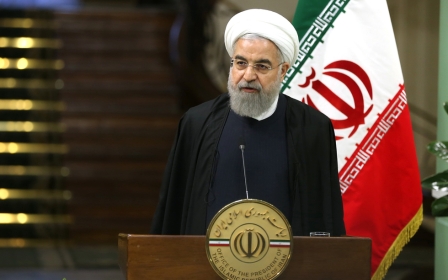ANALYSIS: Newroz, a new year in Turkey tarnished by old tensions
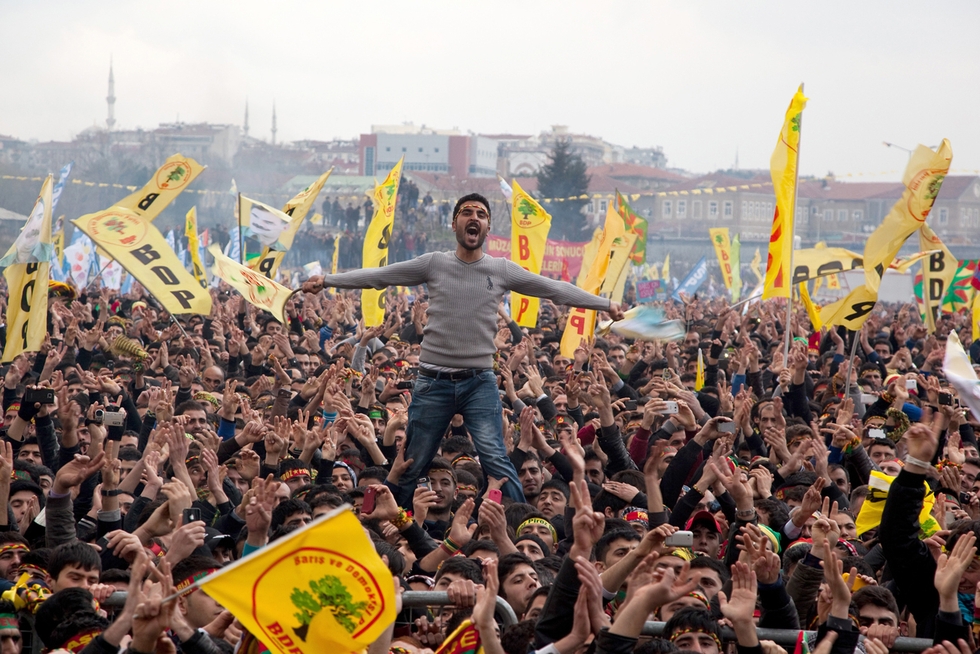
ISTANBUL, Turkey – Turkey is bracing itself for more tension and potential violence as a ban is imposed on the country’s Kurdish population from holding Newroz celebrations in major cities like Istanbul and Ankara.
For decades now in Turkey, celebrations on 21 March - celebrated in many parts of the Middle East as new year - have been politicised by all sides involved.
The Kurdish side has tried to use it to publicise their grievances against the government, while the state has been trying to appropriate Newroz as an Anatolian tradition rather than a Kurdish one.
This year, the stakes appear to be even higher. A real threat of clashes between revellers and security forces looms, as the primary Kurdish political representation, the Peoples’ Democratic Party (HDP), has said it will proceed with its plans to hold celebrations despite the withholding of permission.
This, combined with high tensions as a result of the recent spate of terrorism attacks in Turkish cities, the latest killing three Israelis and an Iranian on Saturday in Istanbul, has put the country on edge.
“These bans are not legitimate and violate our constitutionally granted right to gather peacefully,” Ertugrul Kurkcu, an HDP MP and honorary party president, told Middle East Eye earlier this week.
“The perpetrators of these attacks and the government want the same thing. They want us all to stay home and keep silent so that they can do whatever they want.”
Kurkcu said the HDP would not hold large-scale gatherings in large cities such as Istanbul and Ankara, and would instead promote smaller celebrations.
Ali Bayramoglu, a columnist at the conservative Yeni Safak newspaper, believes the government is “fully within its rights and justified” in banning large-scale gatherings at this point in time.
“As a safety measure you cannot criticise the authorities for imposing this ban. We have lost 217 citizens to terror attacks in the past eight months,” Bayramoglu told MEE.
“Even in France they still have a ban in place on public gatherings in the wake of the Paris attacks. Why should such measures be judged differently here?”
Bayramoglu said the perception that the bans are yet another attempt to target Kurds was a consequence of the “haughty attitude and abrasive language” of officials.
“Behaving like edicts are being handed down without providing explanations, and the generally abrasive and offensive language used by all sides, makes a tense situation even worse,” he said.
Authorities have granted permission for Newroz celebrations to be held in Diyarbakir, Turkey’s largest majority Kurdish-populated city.
Kurkcu, of the HDP, sees the politicisation of a festival that heralds the arrival of spring and a new year as a natural reflection of the bigger picture.
“Any issue that even remotely involves Kurdish rights is a political issue and politicised,” he said.
Newroz is an Anatolian celebration from pagan times, which Turks forgot about but Kurds continued to keep alive, according to Kurkcu.
Once the Turkish state started seeing that Newroz was being viewed as entirely Kurdish and became uncomfortable with the portrayal of Kurdish symbols and colours, it tried to step in and appropriate the event.
“That is when those ridiculous scenes from the military-inspired statist era emerged of officials in ill-fitting suits attempting to celebrate Newroz by jumping over tiny bonfires,” he said.
The tradition of jumping over tiny bonfires is meant to ward off evil for the coming year and is part of celebrations held on the last Wednesday before Newroz.
For Bayramoglu, the state had no option but to also politicise Newroz after the Kurdistan Workers’ Party (PKK) – listed as a terrorist outfit by Turkey, the United States and the European Union – decided to exploit it as a political festival and through it score points for its cause.
The political angle could not be ignored, and even during relatively good times it served that purpose such as when “Abdullah Ocalan’s [the PKK’s imprisoned leader] messages to lay down arms were read out during past Newroz celebrations".
Climate of fear
The refusal of politicians to budge from their positions and a strong climate of insecurity gripping the country means yet another Newroz in Turkey will be held in a climate of fear.
With the southeast of the country devastated by intense urban clashes since last July and other urban centres in Turkey targeted by suicide attacks, ordinary Kurds are finding little to celebrate this Newroz.
Pirseng, a resident of Cizre, one of the south-eastern towns badly affected by the clashes, said hope has died and there is nothing to celebrate.
“Our town lost 500 people, and almost everyone’s homes have been turned to rubble. People are grieving and worried about the future. There is no celebratory atmosphere,” he told MEE on the phone.
Rojin Kodas, a Kurdish resident of Istanbul, told MEE that her family will mark Newroz quietly at home.
“Explosions don’t distinguish between Kurds, Turks or anyone else. We are all afraid to go into crowded areas these days.”
All this is a far cry from scenes just three years ago when hopes of Kurds and Turks co-existing and living in peace were high.
During Newroz celebrations in 2013, Turkish President Recep Tayyip Erdogan, then prime minister, took to the stage in Diyarbakir accompanied by popular Kurdish and Turkish singers Sivan Perwer and Ibrahim Tatlises, promising a future filled with peace and fraternity.
Now opponents see that same Erdogan and the political party he founded as the main impediment to reconciliation.
“What Erdogan and his party are now doing is worse than the denial of Kurdish existence politics of the past. How can he be an interlocutor for peace any longer?” said Kurkcu.
In Bayramoglu’s view, it is such rhetoric that is making things worse and widening the rift.
“Erdogan won around 49.5 percent of the vote in the last election. If an election were to be held now, it wouldn’t be a surprise if he got close to 60 percent of the vote. If he cannot be a party to peace, then who can?”
The one point both Kurkcu and Bayramoglu are in agreement on is that despite these dark times there will eventually be peace some day. They say “if there is war then peace must follow as well".
The question is when. Until then, Newroz in Turkey is likely to be mired in sadness rather than celebration.
New MEE newsletter: Jerusalem Dispatch
Sign up to get the latest insights and analysis on Israel-Palestine, alongside Turkey Unpacked and other MEE newsletters
Middle East Eye delivers independent and unrivalled coverage and analysis of the Middle East, North Africa and beyond. To learn more about republishing this content and the associated fees, please fill out this form. More about MEE can be found here.


